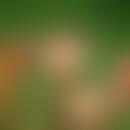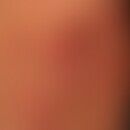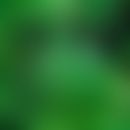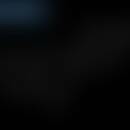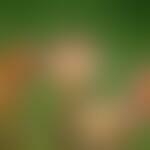Synonym(s)
DefinitionThis section has been translated automatically.
The round-leaved sundew, also known as Drosera rotundifolia or sky dew, is a "carnivorous" plant that belongs to the sundew family (Droseraceae) and is protected in Germany by the Federal Species Protection Ordinance. Of the total of 150 species, the round-leaved sundew is the most common in Central Europe, while others are found in the southern hemisphere, particularly in Australia and New Zealand. The plants growing in Europe can be found as far south as the subarctic zone. All sundew species are strictly protected.
The rosette-like leaves are round to transversely oval. In summer, 7 to 15 cm long, hairy, leafless flower shafts grow with 4 to 12 flowers and reddish, glandular hairs, so-called tentacles, along the edges. The small glands on the upper side of the leaves secrete a sticky liquid that acts as a "glue trap" for small insects. The dew-like aspect of the droplets led to the name "sundew" or Drosera ('droseros' = dewy). When touched by the insects, the tentacles bend and press the trapped insects against the leaf surface. Protein-splitting enzymes digest the insects so that finally only the chitinous shell remains.
The dried herb of the plant(Drosera herba) is used phytotherapeutically.
General informationThis section has been translated automatically.
The round-leaved sundew is a perennial plant that emerges from a winter bud and forms a ground-covering rosette. The plant grows to a height of between 5 and 20 cm and has leaf stalks between 1 and 7 cm long. At the end of these are roundish catch leaves with diameters of 0.5 to 1.8 cm and around 200 fine, reddish tentacles. These are capable of excreting a sticky secretion, which the plant uses to catch insects.
The flowering period of the round-leaved sundew is from June to August.
The flowers, which grow in clusters up to 30 cm high, only open when there is sufficient sunlight.
Drosera rotundifolia (together with other sundew species) is the parent plant of Drosera herba.
Extracts from the herb are used in cosmetic formulations. See below Drosera rotundifolia extract (INCI).
LiteratureThis section has been translated automatically.
- https://arzneipflanzenlexikon.info/sonnentau.php
- https://www.awl.ch/heilpflanzen/drosera/sonnentau.htm
- https://heilkraeuter.de/lexikon/sonnentau.htm
Blaschek W (2015) Wichtl tea drugs and phytopharmaceuticals. A handbook for practice. Wissenschaftliche Verlagsgesellschaft Munich. S 219-221
